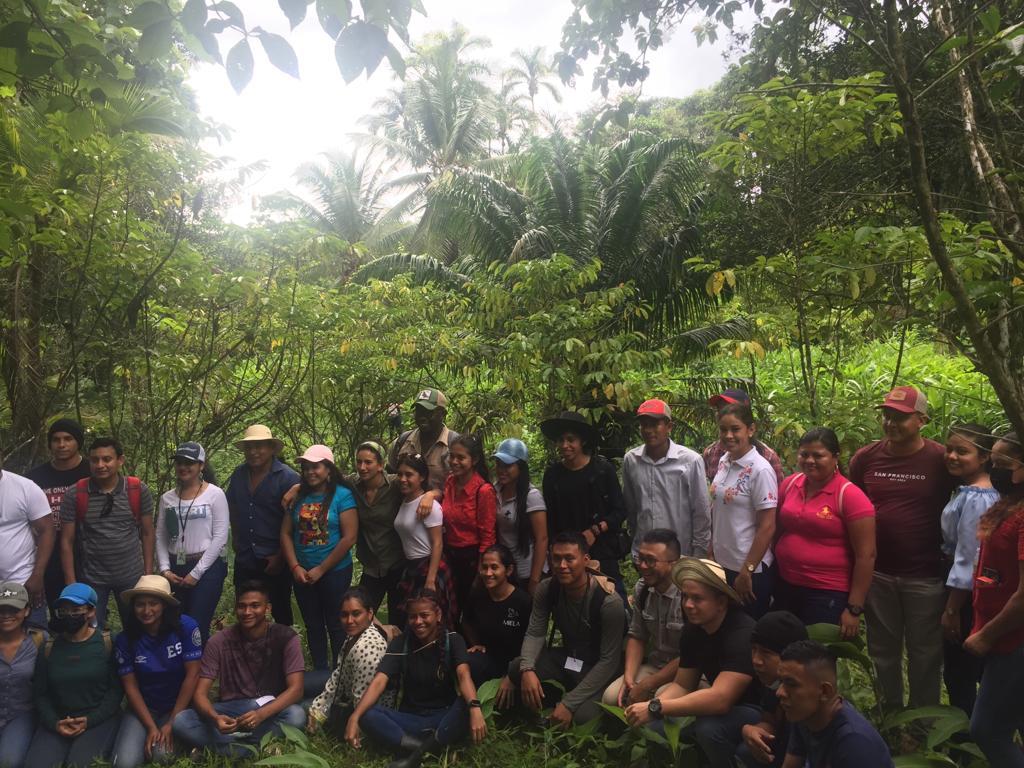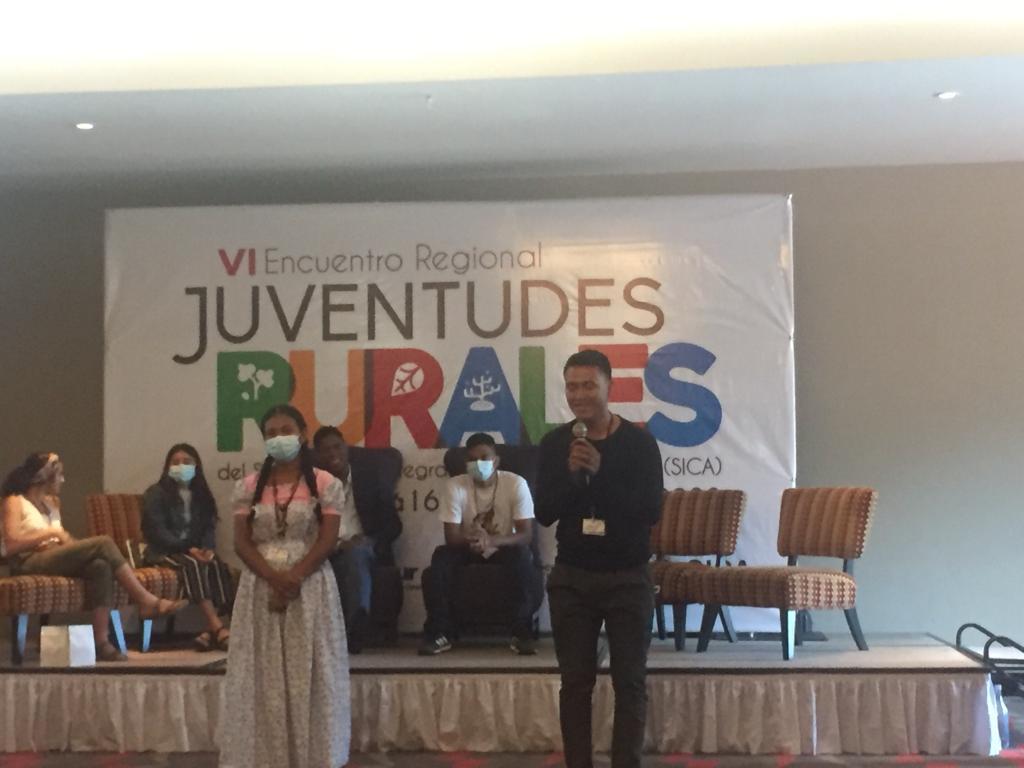Blog Defining a research agenda on rural youth for Central America

35% of the population in Central America is under 35 years of age with little labor participation, significant social inequalities and a lack of access to formal and non-formal education. This population faces its own opportunities and challenges, often ignored by policymakers and research and development programs, particularly those of rural youth, who must navigate between deteriorating opportunities offered by the agricultural sector and a growing desire to participate and access the global consumer market, facing a constant tension between “staying or leaving” in rural areas.
In this context, the Regional Meeting of Rural Youth of the Central American Integration System (SICA) was organized on June 16, 17 and 18, 2022, in Panama City. The event was organized by the Executive Secretariat of the Central American Agricultural Council (SECAC), in partnership with the Ministry of Agricultural Development of Panama (MIDA), and the support of the International Fund for Agricultural Development (IFAD), the United Nations Organization for Food and Agriculture (FAO) and the PROCASUR Corporation for Latin America and the Caribbean. The meeting brought together representatives of the ministries of agriculture, rural youth (part of the SICA rural youth network), international cooperation actors and multilateral organizations, and researchers from the Alliance of Bioversity International and CIAT, as representatives of research institutions.
The new Rural Youth Strategy for the SICA 2022-2030 region was presented at the conference, which will be approved shortly at a meeting of ministers and whose main objective is to expand and strengthen the transforming role of rural youth in the development of their territories, through effective access to resources, opportunities and investments, in dialogue with rural development policies and plans at the regional, national and territorial levels.
During the meeting, young people from the region shared their experiences of entrepreneurship, conservation and community mobilization, evidencing the great diversity of aspirations, challenges, interests and cultural roots that define the Rural Youth in the SICA region:
Abner from Guatemala, who is part of the Utatlán Youth Producers Alliance (AJPÚ), represents an association of young people whose mission is to contribute to the economic reactivation of the territory, revalue agricultural production among youth and involve them in expanding the channels and marketing agreements of families with local markets.
Idnerun, a young Garífuna from Honduras, applies and disseminates practices of restoration, conservation and sustainable use of water and forests, providing Garífuna ranchers and farmers with advisory services on the adoption of environmental practices in favor of sustainable production.
Deily, from Costa Rica, promotes agritourism on the family farm. While Benjamin, from Guatemala, has become the manager of Flor de Tierra, a company that produces and sells high-quality organic products for agricultural nutrition.
Their experiences show the great potential of Rural Youth to promote and strengthen programs for access to markets, technical assistance and support in the use of information and communication technologies (ICT). The diversity of shared experiences also demonstrates the creativity of the Rural Youth, their adaptability to new challenges and opportunities, and their ability to contribute concrete solutions for the region in a context of convergence of multiple crises: the effects of climate change added to those of the COVID-19 pandemic, increasing migration, the global supply chain crisis, and the impact of the war in Ukraine on production costs.
Tapping into this potential requires a better understanding of the factors that facilitate or limit the choices and agency of diverse rural youth, as well as their aspirations and needs in terms of knowledge, skills and resources. From an intersectional perspective that recognizes the interaction of different exclusion factors such as socioeconomic position, ethnicity and gender.
The convergence of interests and actors around the Strategy offers an excellent opportunity to build and promote a Research Agenda on Rural Youth in the SICA region, which allows the role of youth to be defined more clearly at a time of rapid rural transformation. and inform the specific programs and initiatives for the implementation of the Strategy, helping to prioritize areas of action at different scales.
Some of the key issues that were discussed at the meeting and that should be part of that Research Agenda are:
• Heterogeneity of Rural Youth and the experiences of rural youth: identify the factors of vulnerability and discrimination of Rural Youth from an intersectional perspective, and understand how these vulnerabilities influence the aspirations (agricultural or not) of Rural Youth.
• Livelihoods and Economic and Financial Inclusion of Rural Youth: explore how pluriactivity and non-agricultural employment can constitute economic opportunities for rural youth (particularly for young migrants who have returned) and contribute to local economic dynamism. In addition, analyze which financial products and services would be appropriate to support these processes and favor rural entrepreneurship.
• The role of rural youth in the response to climate change and the transformation of agri-food systems: recognize the perceptions of young people about climate and climate change, as well as their contribution to adaptation and mitigation in their territories, the adoption of practices sustainable agronomics and the principles of agroecology.
• Challenges and opportunities of public policies on Rural Youth: determine the impact of various regional, national and local policies to promote skills, rural economic diversification and economic and social inclusion of Rural Youth and factors of success and failure that should be taken into account. account in future policy formulation.
At CGIAR we are committed to integrating these issues as priorities in the lines of research and work of the Resilient AgriLac Regional Initiative, particularly in work package 5, which seeks to respond to local needs with OneCGIAR research on climate resilience, promoters of migration and gender roles, as well as in the work portfolio of The Alliance of Bioversity International and CIAT in the SICA region.

